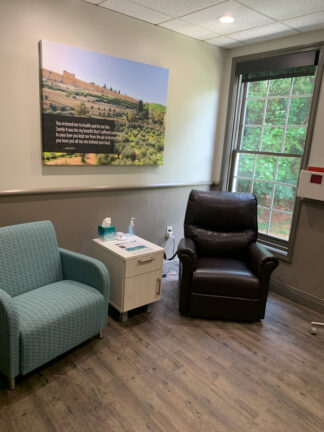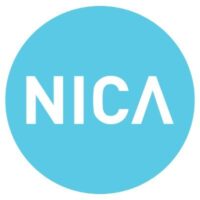By Shane Reeves, Chief Executive Officer, TwelveStone Health Partners
Research has shown that care plan nonadherence is associated with “increased physician visits, higher hospitalization rates, longer hospital stays, disease worsening, and increased mortality.”[1] Patients living with chronic conditions that require intravenous (IV) treatment are especially vulnerable. One of the greatest concerns is adherence to treatment.
 Infusion centers can fill this role by becoming a partner in the patient’s healthcare. The National Infusion Center Association (NICA) emphasizes the importance of patient engagement and the patient’s perspective in assessing costs, access, and quality in the U.S. healthcare system.[2] Not only is the patient experience important to patients and their families, the NICA says it is also correlated with “advances in clinical processes and outcomes” and “adherence to treatment plans,” especially for those living with chronic conditions.
Infusion centers can fill this role by becoming a partner in the patient’s healthcare. The National Infusion Center Association (NICA) emphasizes the importance of patient engagement and the patient’s perspective in assessing costs, access, and quality in the U.S. healthcare system.[2] Not only is the patient experience important to patients and their families, the NICA says it is also correlated with “advances in clinical processes and outcomes” and “adherence to treatment plans,” especially for those living with chronic conditions.
The traditional choices for IV therapy are hospital-based and stand-alone infusion centers. The problem with the prior is that hospitals are often large, hard to navigate, and can feel cold and impersonal. Stand-alone infusion centers, on the other hand, are focused on the patient’s comfort and convenience as well as providing quality care. They are able to offer patients a more personalized care experience with extra amenities to keep them comfortable during treatment.
Creating the optimal infusion center experience
The quality of the patient’s experience can impact care plan adherence.[3] A negative encounter at an infusion center can cause the patient to delay or completely abandon future treatments. Therefore, patient satisfaction and care quality need to be the focus at every step along the patient’s infusion center experience.
From the moment a patient walks into an infusion center, they need to feel valued. Care should be taken with scheduling so as to reduce wait times. Patients with chronic conditions must often deal with pain and discomfort and sitting for long periods in a waiting room can add to the discomfort, not to mention frustration—before the treatment even begins.
Offering both private and non-private treatment suites is a good option as it gives patients the ability to choose what they prefer for that appointment. Treatment suites should be designed with comfort in mind. Spa-like amenities, snacks, wi-fi, television, and heated chairs that recline can promote a peaceful, relaxing environment and a better patient experience.
The importance of cost transparency
One of the best ways to reduce the impact of costs on chronic care patients is to improve price transparency. Because the cost of medications changes often, it can be challenging for infusion centers—let alone patients—to stay on top of pricing updates. This can add to an already complex process that includes preregistering patients for certain drugs, prior authorizations, verifying coverage, co-pays, and deductibles, and determining when a patient might be eligible for discounts from a drug manufacturer.
Along with comfort, it is critical to have a professional team behind the care delivery organization savvy with opportunities that assist patients struggling to afford their treatment regime. Working directly with payers and pharma companies to gain approvals, or fund shortfalls is critical to ensuring that patients who need treatment most are able to benefit from innovative medications.
A poor financial experience can completely negate a positive clinical experience in terms of patient satisfaction.
The healing journey
According to the CDC, 60% of Americans are living with at least one chronic condition while 40% have two or more.[4] For older adults, the numbers are even higher at 85% and 60% respectively.[5] As our nation ages, the prevalence of chronic conditions, especially more complex conditions that older individuals are more likely to have, like heart disease, cancer, and diabetes.
The role of the stand-alone infusion center in providing quality care and a positive patient experience can improve overall compliance and enhance the quality of life for so many.
[1] https://jhoponline.com/ton-online-first/3639-ton-3639
[2] https://infusioncenter.org/infusion-center-news/share-your-chair-the-patients-perspective-in-infusion-care/
[3] https://multiplesclerosisnewstoday.com/2018/08/17/most-ms-patients-ok-with-intravenous-treatment-conditions-study-suggests/
[4] https://www.cdc.gov/chronicdisease/resources/infographic/chronic-diseases.htm
[5] https://www.nia.nih.gov/health/supporting-older-patients-chronic-conditions















